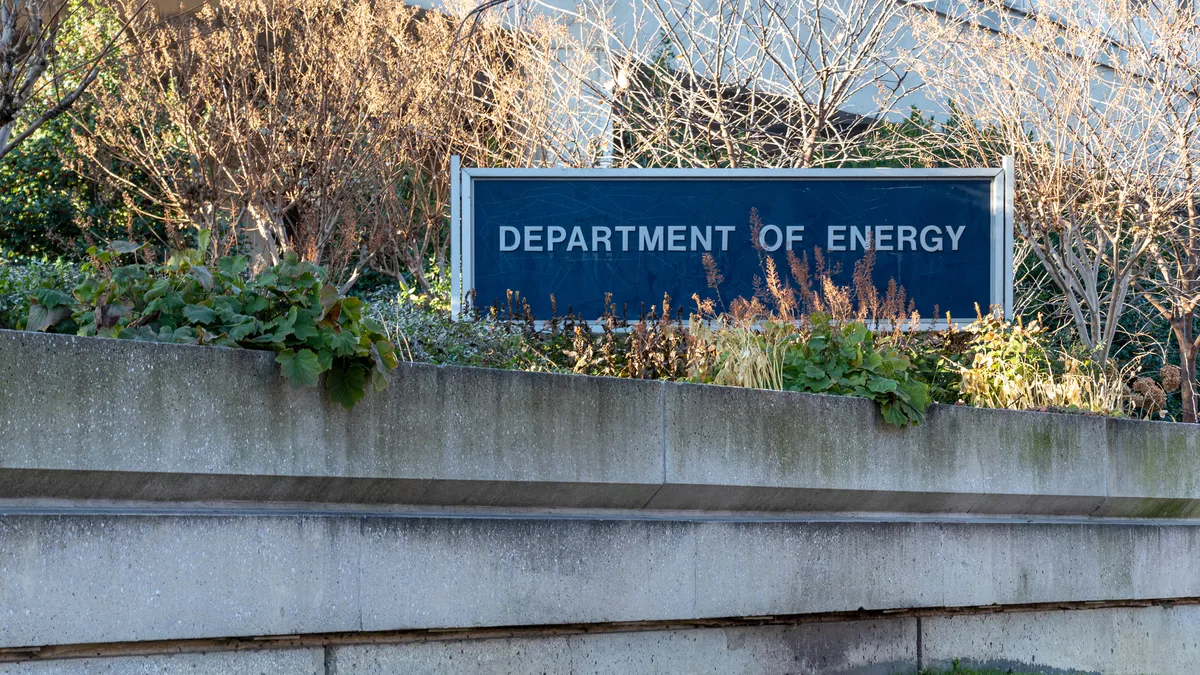Applications are due in January for up to $900 million to support the domestic deployment of Gen III+ small modular reactors, the U.S. Department of Energy said Wednesday.
“Next-generation nuclear energy will play an important role in building the clean power sector of the future,” Senior Advisor to the President for International Climate Policy John Podesta said in a statement. “Today’s funding will boost American innovation, bolster our national security, and tackle the climate crisis.”
The U.S. will need up to 900 GW of new clean, firm power generation capacity to reach net-zero emissions by 2050, DOE said, noting that “nuclear power is a proven option that could be deployed to meet this growing demand.”
The new funding will be offered in two tranches, helping to create a “credible and sustainable pathway” to deployment, DOE said.
Up to $800 million will be provided for “first mover team support” awards that will be managed by the Office of Clean Energy Demonstrations. Awards will support up to two teams of utilities, vendors, developers and end-users “committed to deploying a first plant while facilitating a multi-reactor, Gen III+ SMR orderbook,” the agency said.
Teams applying for first mover support must include a U.S. utility, reactor vendor, and engineering, procurement, and construction company, DOE said. The lead applicant must be either the utility or an end-user, development company or incorporated consortium.
Another $100 million for “fast follower deployment support” will be managed by the Office of Nuclear Energy to spur additional deployments “by addressing key gaps that have hindered the domestic nuclear industry in areas such as design, licensing, supplier development, and site preparation.”
Fast follower support can be accessed in three different categories, including site selection and preparation, supply chain development and project improvement.
“All across the country, we are seeing a muscular resurgence in American energy innovation – from bringing back previously shuttered nuclear plants to bringing online new technologies and new reactors,” said White House National Climate Advisor Ali Zaidi. “America’s nuclear industry is racing ahead because strong Biden-Harris policies are spurring billions in private sector investment into this critical technology, which will lower energy costs and create good-paying union jobs.”
Nuclear energy supplied nearly half of America’s carbon-free electricity last year, according to DOE, and utilities are now seeking to extend the lifespan of existing reactors, planning capacity uprates, reversing closure plans and restarting mothballed plants.
Amazon announced Wednesday that it has signed three agreements to support the development of small modular reactors in the U.S., including one with Energy Northwest to deploy four reactors developed by X-energy. Similarly, on Monday Google announced it has tapped Kairos Power to develop, build and operate a 500-MW fleet of advanced nuclear power plants by 2035, with the first set to come online by 2030.
In September, Constellation Energy unveiled plans to restart the 835-MW Three Mile Island Unit 1 nuclear generating station in Pennsylvania, and DOE’s Loan Programs Office made a loan guarantee up to $1.52 billion to Holtec International to restart operations at the 800-MW Palisades nuclear generating station in Southwestern Michigan.














